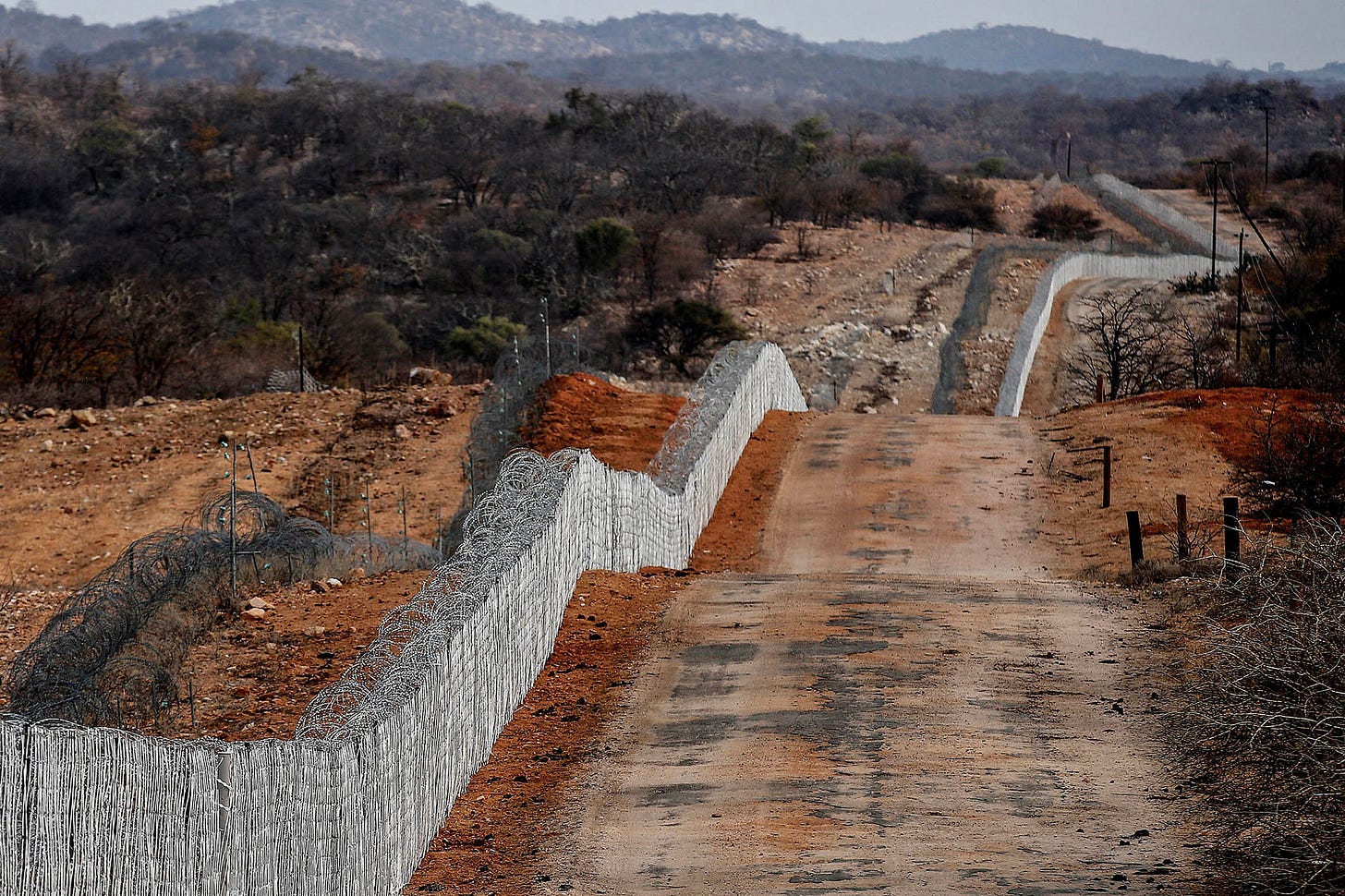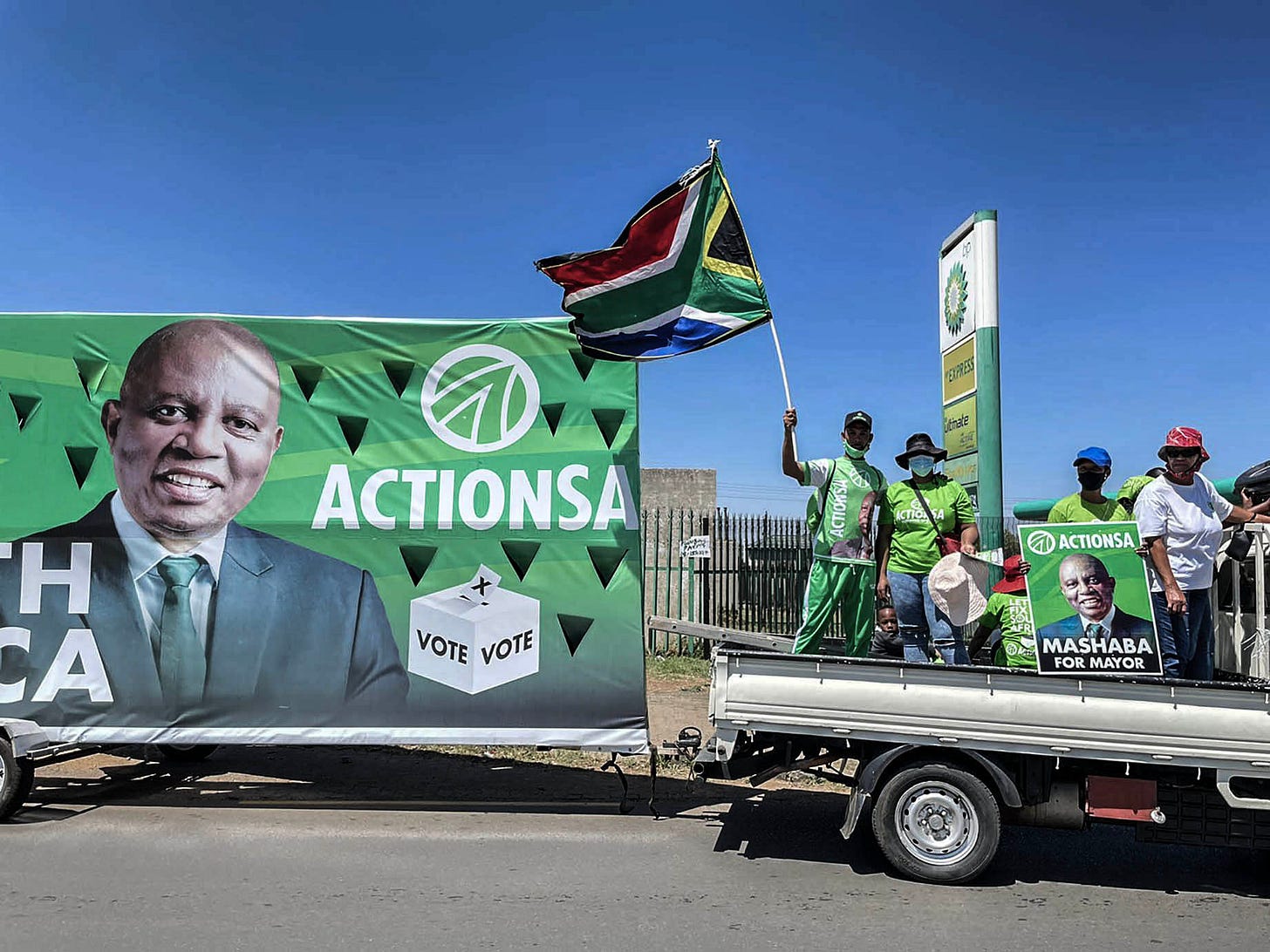Blame the neighbours, build a bigger wall
Anti-immigrant sentiment has become a major theme in the run-up to South Africa’s elections
Jan Bornman

Last week, state investigators conducted simultaneous raids at all five of South Africa’s refugee reception centres. They said they were looking for evidence of corruption, but the timing – with an election around the corner – was telling.
ActionSA, a minor opposition party, welcomed the move. “It has taken this government too long to finally see reason that South Africa, and its appallingly porous borders, has an immigration crisis,” it said in a statement.
Porous borders, illegal foreigners and “the immigration crisis” are a big part of ActionSA’s electoral campaign. The party is led by former Johannesburg mayor Herman Mashaba, who was accused by immigrant rights groups of inciting Afrophobic violence while in office.
Another minor party, the Patriotic Alliance, is even more explicit in its attacks on foreigners. Its leader, Gayton McKenzie – a convicted bank robber – has warned undocumented migrants that this is the year that “we are coming for you”.
In January, McKenzie ran up and down along South Africa’s border with Zimbabwe near Beitbridge in Limpopo with members of his party. They attempted to “intercept” people crossing the border without documents.
In echoes of rightwing sentiments heard in Europe and the United States, the Patriotic Alliance wants to build a wall along South Africa’s 4,862km-long land border, and blames undocumented foreigners for South Africa’s high crime statistics, and for abusing social services. These claims do not stand up to scrutiny.
“What we find is, there is really no basis in terms of the evidence available to suggest that there is a correlation between the increase in undocumented migrants and crime,” said Ringisai Chikohomero, a researcher at the Institute for Security Studies. “And there is no scientific basis to suggest that foreigners are putting pressure on social services.”
Neither the Patriotic Alliance nor ActionSA are making much headway in the polls, with both polling at 3% or less. But these ideas are finding their way into the rhetoric of mainstream parties, and even the government, led by the African National Congress.
This was evident not only in the raids on refugee centres, but also in a controversial policy document by the department of home affairs. This calls for South Africa to temporarily withdraw from two major international agreements on refugee protection, and would make it significantly more difficult for asylum seekers to obtain citizenship.
Lawyers for Human Rights said that the government policy document “does not read coherently, nor does it provide credible sources for the statements it makes, or the statistics it provides. As a public policy document, this is unacceptable.”
Despite this criticism, the ANC has made this proposed policy the foundation of its own immigration policy For migrants already in South Africa – many of whom have lived through previous cycles of Afrophobic violence – the hardening political rhetoric could have serious consequences.
Jean Bwasa, a former refugee from the Democratic Republic of the Congo and the founder of Rights 2 Live Africa, said: “Every election cycle, the migrant becomes the scapegoat because they are supposedly stealing jobs. But we don’t take into account that migrants are creating jobs in this country and they also contribute to this society.”
“People like Gayton McKenzie and Herman Mashaba don’t necessarily see this. So it is important that we single out the contributions of migrants in South Africa,” Bwasa said. “At the moment we live in fear because we know it is an election year. We are very cautious where we go, what we do, and what we say.”




